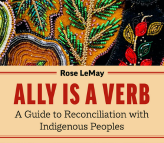Hill Times February 24 2020
We are adding to the crisis in the relationship with Indigenous peoples.
It’s a crisis. Many people are scrambling to come up with policy options. Tensions are high. We all want it resolved. And that, Ottawa, is pretty much all that we can agree on. Those are the facts. Everything else is contested and/or complicated.
Is it about pipelines? Yes. And it’s also about government overreach in Indigenous governments, the oil and gas industry’s hardening grip on a dying energy source, the alarming tendency of the RCMP to use excessive force when Indigenous peoples are involved, and a desperation that Canada doesn’t really want to do reconciliation. There’s a desperation that Canada doesn’t value Indigenous communities, and a fear that the daily racism and unconscious bias against Indigenous peoples might continue to risk our daily lives.
The rhetoric that criminalizes Indigenous peoples’ perspectives and rights, for example Andrew Sheer, and also the social media flaming against Indigenous writers, this is precisely what prolongs and deepens the crisis. Because this is proving the fears of Indigenous peoples, that racism and unconscious bias are alive and well and perhaps untouchable.
What’s next? I have a few thoughts, and I only speak for myself. No, I don’t speak for all First Nations.
It would benefit Ottawa to take responsibility for its own unconscious bias against Indigenous peoples. Our brain has two “systems,” the automated quick response based on implicit associations, emotions, and past experiences; and the slower, more methodical system based on logic and reason. Our culture and socialization give us the “software” or content for the automated quick response part. Sometimes it works. Sometimes it isn’t helpful.
The colonial hangover in Canada is the unconscious bias against Indigenous peoples. It shows itself in the intentional lack of inclusion of Indigenous peoples, and in the tendency for non-Indigenous peoples to speak on Indigenous perspectives. It shows itself in a hundred different ways that combine and result with the RCMP aiming rifles at Indigenous women and taking away their ceremonial drums, as reported by Amber Bracken in The Narwal on Feb. 10.
Here’s some of the evidence of the unconscious bias flaming the crisis. The Liberals’ lines of “everyday Canadians” and “middle-class Canadians,” which clearly never include Indigenous peoples. The use of the word “protest” when Indigenous peoples are involved, and “demonstration” when it’s everybody else. The number of panels in the news with non-Indigenous journalists weighing in with their ideas of what Indigenous peoples want. The tendency to dismiss Indigenous knowledges (hereditary systems, connection to the land), and belittle Indigenous perspectives.
Let’s put it another way. Hypothetically, let’s pretend a national oil conglomerate decided it needed a new pipeline and demanded that it will run straight through Rockcliffe Park because it’s the least risky, economically speaking. Let’s pretend that some people in the neighbourhood agree and take the payout, and some don’t. Those who disagree with the pipeline stand in front of their schools and libraries to protect them. Here’s where the analogy starts to show itself: I highly doubt journalists would slay Rockcliffe people because they lack consensus. And I know the RCMP would not storm down Buena Vista Road to clear the way for the pipeline developers.
This is how we challenge unconscious bias. We slow it down and we think about it. We consider if this is how we would talk about it if it were any other group, and then we get to decide whether or not we want to perpetuate the racism or choose respect.
The change required is not going to be easy, because it’s bigger than we thought, and it’s not a change Ottawa gets to “do to” others or through law on others. The change required is that Ottawa itself needs to take responsibility for its unconscious bias. Politicians, political insiders, government executives, this is on you. Until this fundamental change occurs, Ottawa will continue to contribute to the crisis.
